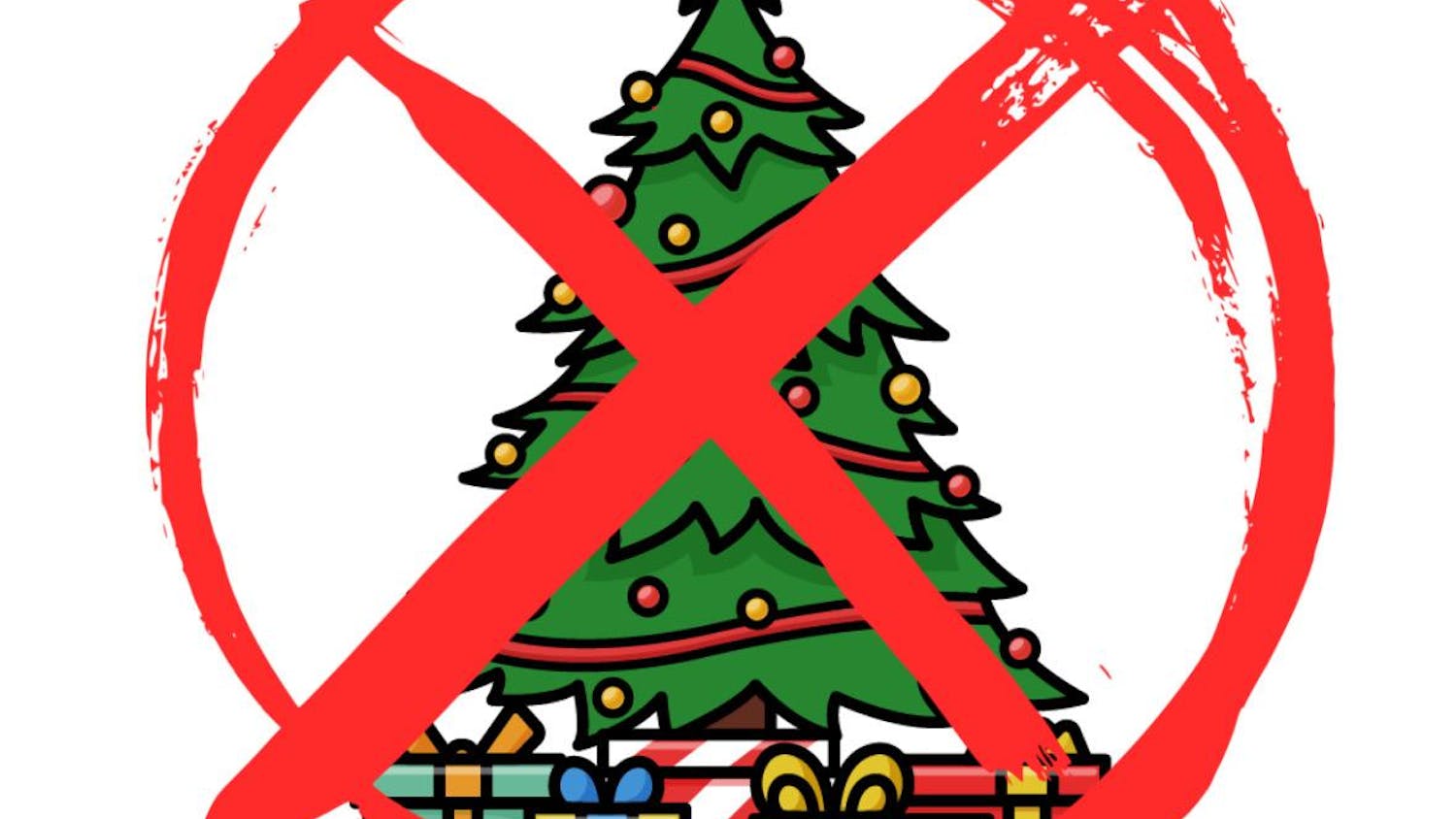The number of theories explaining why gas prices have risen so drastically should be enough to satisfy even the most creative of conspiracy theorists.
From White House intrigue to the tanking of the dollar, everyone seems to think they know why gas prices are sky- high.
What exactly is going on and what can be done to fix it are some of the most pressing concerns both Congress and the presidential candidates are planning to address.
Many theorists agree that increased oil costs have directly influenced the pump price.
Gasoline is made from refined crude oil purchased by the United States and made by domestic refineries.
According to an Energy Information Administration (EIA) brochure, "Consumption in 2007 was about 142 billion gallons (of crude oil), an average of about 390 million gallons per day."
One barrel of crude oil measures in at about 42 gallons and produces about 19.6 gallons of gasoline.
The U.S. produced 90 percent of the gasoline used for 2007, but less than 35 percent of crude oil needed to make the gasoline was produced domestically.
This reliance is reflected in the pump price because of the record high cost of crude oil.
According to the EIA, "the cost of crude oil now accounts for almost 70 percent of the gasoline pump price. World crude oil prices are at record highs due mainly to high worldwide oil demand relative to supply."
This is where the theories come into play. Based on supply and demand, price should balance between how much oil there is and how much oil people want.
Unfortunately, a few factors are disrupting that price balance.
First, the demand for oil is higher than the supply and that is raising prices. Secondly the U.S. dollar is weak.
The "bickerfest," as US News termed it, between President George W. Bush and the Organization of the Petroleum Exporting Countries (OPEC) neatly illustrates these two problems.
Bush asked OPEC to increase oil production in order to meet the increased demand. Based on the supply and demand laws, more supply should drive down the costs caused by high demand and balance the price.
OPEC responded by saying that the problem is not low supply and high demand, but the weak dollar. Crude oil is priced in dollars on the world market.
According to MIT professor and former White House economic advisor Kristin Forbes, in a US News article, "when the dollar is weaker, foreign currencies are stronger... people in other countries can buy more oil for the same amount of money... that oil becomes cheaper to foreigners."
This "cheaper oil" increases world demand, which drives up the price of oil on the market in dollars.
"In the United States it looks like the price is going up sharply, in dollars, while in other countries it's actually going up by much less, or staying about the same," said Forbes in the article.
Federal, state and local taxes also take their toll on the price you pay.
In fact, taxes account for a bigger percentage of the overall retail price than markups by the gas companies.
Although it may seem like owners are marking up the price to make a huge profit, only 10 percent of the price is retail cost. This percent is actually down from the 12 percent prior to 2000.
Refinery costs make up 17 percent and taxes make up 24 percent of the total retail price.
So if we know why gas prices are on the rise, common sense would suggest there are people out there trying to fix the problem.
The information below explains the ideas presidential candidates and members of Congress are coming up with on how to bring the price of gas back down to something closer to affordable.
PLAN-Sen. John McCain: proposed a "gas tax holiday" which would remove the 18.4 cent Federal tax on gas from Memorial Day until Labor Day.
-McCain and Obama: support a "cap-and-trade policy." Cap-and-trade policy means that a limit (cap) is set on the amount of pollution a company is allowed to emit. Then, if companies need to emit more pollutants then they have permission to, they buy emission permits from companies that have more than they need (trade).
-Obama: supports a "windfall profits" tax on oil companies. Oil companies that make profits above and beyond a "reasonable" amount would be charged 25 percent of the "unreasonable" profit unless the surplus was put into funding for renewable energy research.
-The most controversial of ideas proposed to deal with the gas price rise involves opening up Alaska and the coastlines to oil companies for drilling. Republicans have proposed a bill that would open up the Arctic National Wildlife refuge to drilling companies
-The Senate and Bush have been in a veto battle around a proposed bill to encourage funding for biofuels, or fuels made from biological products like wood chips or corn. Congress overrode the veto May 22nd.
-Republicans and Democrats are calling for a halt to the purchase of oil for the Strategic Petroleum Reserve (SPR), which was created to store oil in case of a sudden shortage. Currently, there are 701.3 million barrels in the reserve. Bush wants to fill the SPR to capacity, 727 million barrels, by October. PROS
-The "holiday" would allow motorists to afford gas required to enjoy the summer season and vacation, without breaking the bank.
-The "cap-and-trade policy" was created to help make companies more environmentally friendly at the lowest cost to society, giving people the "green" companies they want without taxing them for it.
-The money from the tax would go toward helping middle class families pay their utility bills.
-Drilling in the preserves would increase domestic product output, which would decrease the ratio between oil supply and demand and may balance the price out. Opening the preserve could shave as much as 75 cents off each barrel of crude oil.
-The ethanol industry would help the economy by creating new jobs and tax revenue. Also, in 2007 ethanol reduced oil imports by 228 million barrels, which roughly comes to 45 million per day.
-This halt could mean 5 to 24 cents off the per-barrel price and also would increase the available supply of oil, which would offset demand and lower pump prices.
CONS
-It is only temporary and may actually raise prices because cheaper gas will increase the already high demand.
-Oil companies would have to purchase emission permits and they would most likely charge more at the pump to cover the permit cost. In essence, we would pay so that companies can legally pollute.
-Companies may raise prices to pay the tax so here, again, consumers would be paying the bill for the company. Also, in the 1970s this approach was tried and, not only did prices not go down, but domestic production suffered as well.
-These bills are difficult to get through Congress because of the many environmental concerns, like endangering the natural habitat of the polar bear, a species that is under a "threatened" status.
-The research is not complete and there are "knowledge gaps," according to the New York Times that make determining ethanol's use difficult. Also, ethanol production could strain water and corn resources.
-If there was to be an oil emergency, having the oil available in the SPR would be beneficial. Also, Congress isn't considering a permanenant halt, only a temporary one, until price per barrel falls back down to $75 or less. t&c;
Information compiled by Rachel Scali, News Editor. Sources include Redorbit.com, Msnbc.com, Sciencedaily.com, Eia.com, the Wall Street Journal and the New York Times







